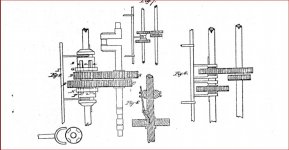JHOLLAND1
Titanium
- Joined
- Oct 8, 2005
- Location
- western washington state
in 1790 the First US Congress delegated patent application review and award to the Patent Commission--consisting of Secretary of State, Secretary of War and Attorney General
this system functioned until the first of several fires destroyed all patent records and working models required in those days--in 1836
and in that year senator from Maine John Ruggles sponsored a bill to create the Patent and Trademark office of 1836--and strangely enough--Senator Ruggles, himself an inventor--was awarded patent No 1 under the new system
destroyed patents spanning 1790 to 1836 are now labeled "X-patents"
this system functioned until the first of several fires destroyed all patent records and working models required in those days--in 1836
and in that year senator from Maine John Ruggles sponsored a bill to create the Patent and Trademark office of 1836--and strangely enough--Senator Ruggles, himself an inventor--was awarded patent No 1 under the new system
destroyed patents spanning 1790 to 1836 are now labeled "X-patents"









